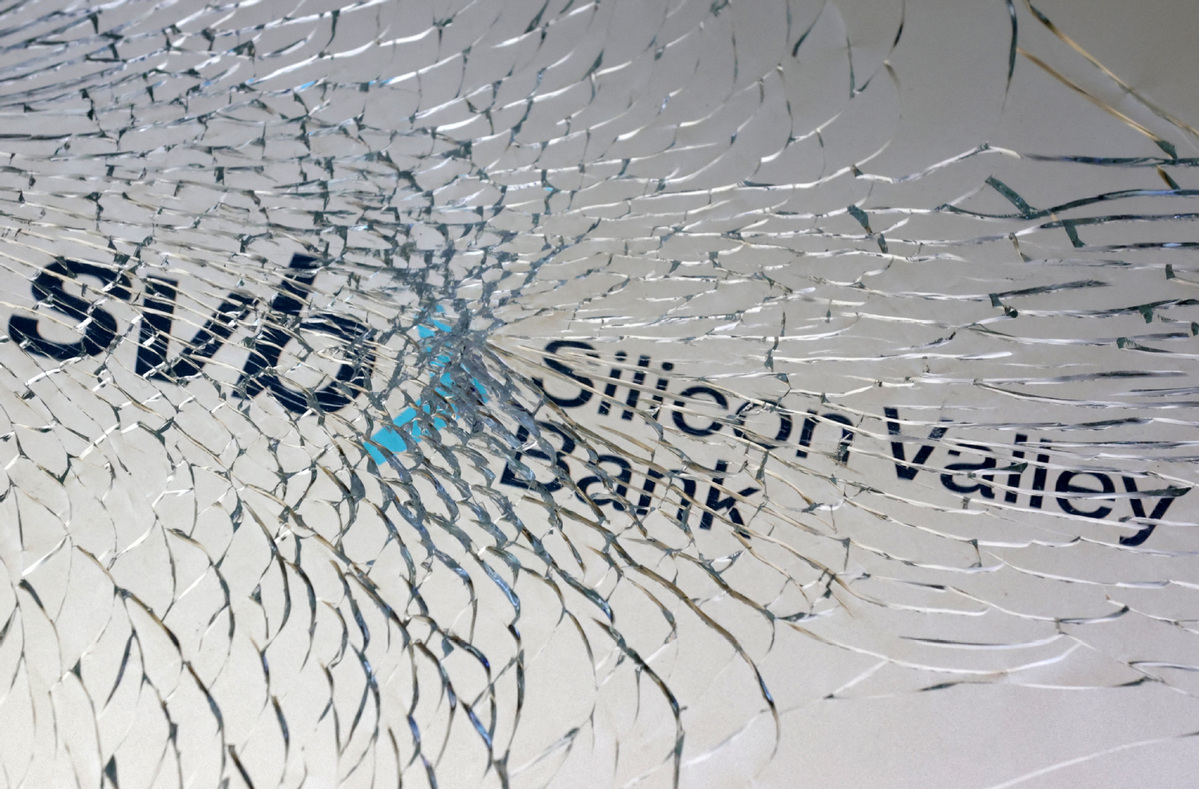US to rescue failed banks' depositors


The US government took extraordinary steps Sunday after the historic failure of Silicon Valley Bank, assuring depositors at the venture capital-heavy institution that they would be able to quickly access all of their money.
The announcement came amid fears that the factors that caused the Santa Clara, California-based bank to fail could cause a banking contagion, and only a couple of hours before trading opened on Asian markets.
The Treasury Department, the Federal Reserve and the Federal Deposit Insurance Corporation (FDIC) said Sunday that all SVB clients will be protected — including accounts that exceed the FDIC-insured limit of $250,000.
"Depositors will have access to all of their money starting Monday, March 13. No losses associated with the resolution of Silicon Valley Bank will be borne by the taxpayer," the agencies said in a joint statement.
"This step will ensure that the US banking system continues to perform its vital roles of protecting deposits and providing access to credit to households and businesses in a manner that promotes strong and sustainable economic growth."
S&P 500 stock futures rose 1.4 percent after the announcement.
Regulators had worked over the weekend to try to come up with a buyer for SVB, the second-largest bank failure in history. Those efforts appeared to have come up empty as of Sunday.
SVB equity and bondholders would be wiped out, said the official, who briefed reporters after the announcement late Sunday.
The regulators also announced that New York-based Signature Bank had failed and was being seized on Sunday. At more than $110 billion in assets, Signature Bank is now the third-largest bank failure in US history.
The officials also said that depositors at the bank, which was closed Sunday by the New York state financial regulator, would be made whole at no loss to the taxpayer. The bank was a go-to institution for cryptocurrency companies.
Signature's shareholders and unsecured debtors will not be protected, and management has been removed, the officials said.
The Federal Reserve also said Sunday it would make additional funding available through a new Bank Term Funding Program, which would offer loans up to one year to depository institutions, backed by Treasury notes and other assets these institutions hold.
Treasury Secretary Janet Yellen had said earlier on Sunday that she was working with banking regulators to respond after SVB became the largest bank to fail since the 2008 financial crisis, following the collapse of Washington Mutual that year.
SVB had $209 billion in assets and $175.4 billion in deposits at the time of failure, the FDIC said in a statement. The bank served mostly technology workers and venture capital-backed companies.
"We want to make sure that the troubles that exist at one bank don't create contagion to others that are sound," Yellen told CBS' Face the Nation.
But she emphasized that the situation was different from the financial crisis almost 15 years ago, which led to bank bailouts to protect the industry.
"We're not going to do that again," she said. "But we are concerned about depositors, and we're focused on trying to meet their needs."
A senior US Treasury official said Sunday that the firms were not being bailed out, but that depositors were being protected.
US Senator Mark Warner, a Virginia Democrat, said on ABC News' This Week that he was concerned that SVB's collapse could prompt people to transfer money from other regional banks to larger institutions.
"We don't want further consolidation" in the banking industry, he said.
But Warner suggested there would be a "moral hazard" in reimbursing depositors in excess of the $250,000 FDIC limit and said an acquisition would be the best next step.
Many SVB deposits exceeded that level — with some reports that more than 90 percent of SVB deposits did.
"There's something very ugly happening right now: VCs & startup execs who stand to lose their deposits at SVB are going *out of their way* to push a narrative that there'll be a bank run on Monday if SVB depositors aren't bailed out by the government," tweeted Vivek Ramaswamy, a Republican candidate for president.
He wrote that "SVB's situation is unique: a staggering *89%* of its deposits were uninsured (way higher than normal banks). And they didn't hedge interest rate risk which is a cardinal sin given the portfolio they held," adding that the bank pledged $5 billion in 2022 to "sustainable finance and carbon neutral operations to support a healthier planet".
"We, the American people, would be better off if the Federal Reserve Bank, an instrument of the very wealthy and connected, did not exist to socialize the risks of insiders while distorting our economy, destroying jobs, and devaluing our currency," US Representative Thomas Massie, a Kentucky Republican, tweeted Sunday.
The FDIC seized SVB on Friday after a run on its deposits thwarted the bank's attempts to raise fresh capital and bolster its finances.
The bank began the slide into insolvency when its customers, largely technology companies that needed cash as they struggled to get financing, started withdrawing deposits. SVB had to sell securities at a loss to cover the withdrawals.
The bank had bought tens of billions of dollars of seemingly safe assets, primarily longer-term US Treasurys and government-backed mortgage securities, the latter of which were at the heart of the 2008 financial crisis.
But those pay fixed interest rates in maturities that can be as long as 30 years. The term isn't a problem per se unless the bank suddenly needs to sell the securities.
As interest rates have surged, the securities are worth less on the open market than their valuation on the bank's balance sheets.
When interest rates rise — as they have the past year or so as the Federal Reserve looks to stem four-decade-high inflation — the market price of the bonds drops. As a result, when the securities have to be sold, it will be at a loss.
The collapse of SVB sent reverberations around the world, with the British government rushing to limit any fallout stemming from the bank's UK subsidiary and worries in countries like Israel and India, where tech firms have relied on the bank.
Shockwaves from SVB's collapse showed up in the S&P 500 regional banks index, which dropped 4.3 percent on Friday to end the week down 18 percent, its worst five-day dip since 2009.
Agencies contributed to this story.

































